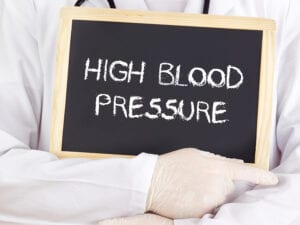4 Kinds of Hypertension You Should Know
When your aging relative goes to the doctor, one of the first things the nurse probably does is check their blood pressure. One of the reasons blood pressure is checked at every appointment is that hypertension, or high blood pressure, is a common problem. But, because it generally has no symptoms, the only way to know if someone has it is to have it checked. While you may be aware that hypertension is a condition that is common among seniors, you may not know that there is more than one kind of hypertension. Knowing the kind of hypertension your older family member has can enable you to better manage it. Below are 4 kinds of hypertension to know about.
#1: Primary Hypertension

Senior Care Highland Park, IL: 4 Kinds of Hypertension
Primary hypertension is sometimes called essential hypertension. It’s the kind of hypertension that most people have. It’s the kind of hypertension that has no clear cause. Primary hypertension develops slowly over years. There are usually no symptoms, but some people do report having headaches or feeling tired or dizzy.
#2: Secondary Hypertension
Secondary hypertension is high blood pressure that is caused by some kind of underlying condition. This kind of hypertension usually comes on suddenly and is often worse than primary hypertension. Some of the things that can lead to secondary hypertension are:
• Kidney problems.
• Adrenal gland tumors.
• Thyroid problems.
• Obstructive sleep apnea.
• Some medications, including decongestants and over the counter painkillers.
Often, when doctors can identify the cause of secondary hypertension and treat the underlying problem, the hypertension can be managed, too.
#3: White Coat Syndrome
When someone seems to experience high blood pressure only in the doctor’s office, it is called “white coat syndrome.” Usually, when this happens, the doctor will wait a bit and recheck. Many times, blood pressure goes down as the patient gets more comfortable in the office. However, because some doctors believe that white coat syndrome is a warning sign of developing high blood pressure, it’s important that older adults stay on top of it and monitor their blood pressure at home.
#4: Malignant Hypertension
Malignant hypertension is rare. It occurs when blood pressure is extremely high and organ damage has begun. Malignant hypertension is a medical emergency. Signs that an older adult is experiencing a hypertensive emergency are:
• Dizziness.
• Chest pain.
• Feeling short of breath.
• Vision problems.
• Weakness.
• Loss of consciousness.
If your aging relative is diagnosed with hypertension, a senior care provider can help them to manage the condition. Senior care providers can remind them when it is time to take their blood pressure medication, an important part of treatment and management. Senior care providers can also help the older adult to be more physically active, which can help to lower blood pressure. In addition, a senior care provider can prepare healthy meals that are low in sodium.
If you or an aging loved one are considering Senior Care in Highland Park, IL, contact the caring staff at Companion Services of America today at (847) 943-3786. Our home care service area includes Northbrook, Highland Park, Deerfield, Glenview, Buffalo Grove, Evanston, Des Plaines, Skokie, Lake Forest, Wilmette and the surrounding areas.
Sources
https://www.verywellhealth.com/hypertension-4014076
https://www.everydayhealth.com/hypertension/understanding/types-of-hypertension.aspx
https://www.mayoclinic.org/diseases-conditions/high-blood-pressure/symptoms-causes/syc-20373410
https://www.medicalnewstoday.com/articles/320861.php
- Understanding the Importance of Planning for a Hospital Stay - April 23, 2024
- Getting Seniors to Talk About Feelings of Loneliness - April 17, 2024
- Helping Seniors Reduce Pain and Discomfort to Gain a Good Night’s Sleep - April 10, 2024
